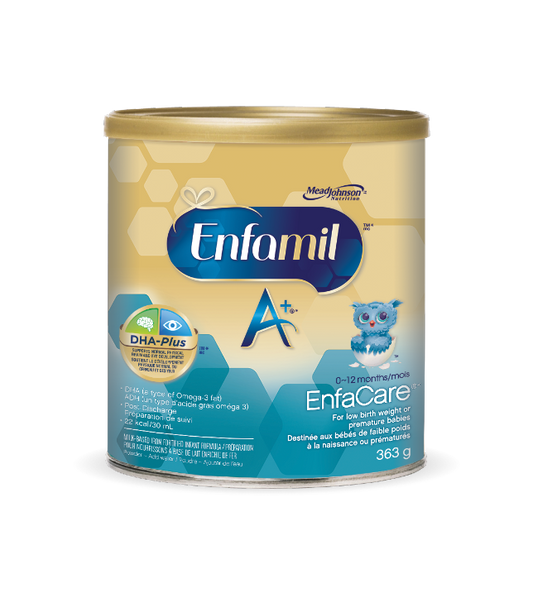SKIP TO CHAPTER

Premature infants have special feeding needs all their own.Refer to the information below to help you through those crucial first weeks.
Try these tips on feeding your premature infant:
When you get home:
- Your infant must gain some weight in the hospital before she can go home.
- Your baby must eat enough volume to assure proper weight gain so that she can become stronger and healthier. Ask the nurses to watch you during feedings to be sure you are holding the infant in a comfortable position and feeding her correctly.
- Providing breast milk is usually possible through pumping.
- In the hospital, your infant's doctor may recommend adding a commercially-prepared human milk fortifier to your expressed breast milk to provide extra protein, vitamins, calcium and other nutrients to your infant. Your baby may be able to directly breastfeed as his ability to coordinate suck and swallow improves. If you can't pump or breastfeed, or choose not to, or if you supplement your breast milk with formula, you can feel confident about the specially designed formulas available for premature infants.
- When your baby leaves the hospital, talk to your baby’s doctor about Enfamil® EnfaCare A+®, a special formula designed to meet the increased nutritional needs of low birth weight or premature infants with extra calories, protein, vitamins and minerals.
- If you are formula feeding or supplementing, your infant's doctor will probably recommend a special formula for premature infants, fortified with extra nutrients.
- Premature babies need to eat at least every 3 hours.
- Smaller infants naturally have smaller stomachs, meaning that they must eat small but frequent meals to promote weight gain and satisfy their dietary needs.
- Mouths of premature infants are often extra-sensitive.
- If your infant has spent his first few days with tubes and respirators in his mouth, he may assume that anything that goes into her mouth is painful, including a breast or a bottle.
- Premature babies take longer to feed
- It is important to take your time when feeding a premature infant. Feeding too fast by mouth may result in a feeding aversion or spitting up. Furthermore, premature infants are born with a less-developed digestive system than a full-term infant, so digestive problems are common.
- Each infant is unique. Follow the advice of your infant's doctor.
- Introduce your infant to a nipple. Even if he is still feeding by tube, this will help him adjust to bottle feeding when he's ready. You may need to try different nipples at first.
- Stick to breast milk or one type of formula and nipple to help him adjust.
- Keep a record of your baby's feedings.
- Get growth charts, specially designed for premature babies, from your infant's doctor to help monitor his progress.
- Make sure your infant is fully awake before feeding.
- Try to keep him on a sleep schedule.
- Don't force your infant to eat. If he's not sucking as fast, sealing his lips or turning away, he may be full.
- Feed on demand, not a schedule. Studies have shown that premature babies grew at a faster pace when fed on demand.
- Enlist the help and support of family and friends to give yourself a break.
Learn more about Enfamil EnfaCare A+
Enfamil EnfaCare A+ may be available through provincial drug benefits programs. Ask your doctor or pharmacist if you qualify for the Ontario Drug Benefits Program, the Régie de l'assurance maladie du Québec, or the Saskatchewan Aids to Independent Living Program.






